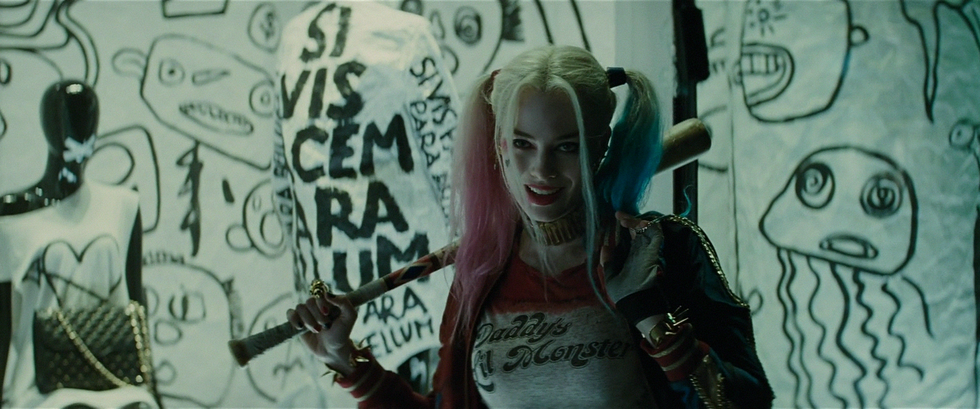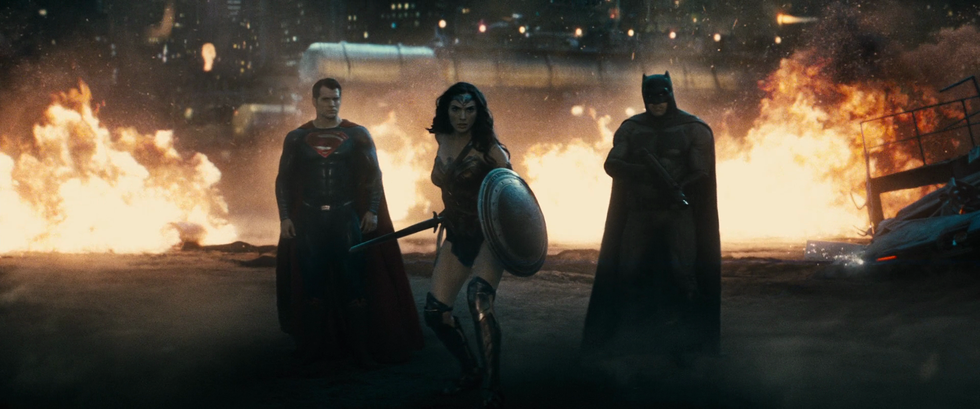Considering the political situation of this moment, it's very simple for me to write another article about how things are going, but I'm deciding to not do that and talk about lighter topics, such as the world of film, where everything is going....surprisingly the same.
2016 was a divisive year for film, and it all started in March with the release of Batman V Superman: Dawn Of Justice. While the film was financially successful and appreciated by most viewers, critics blasted the movie for its scattershot plot and third act finale. There is a 40-point divide between critics and audiences at the moment, and the divide increased when the movie's extended edition was released. This officially made Batman V Superman the most polarizing movie of 2016 by a clear mile, and the most polarizing superhero movie ever made since Watchmen (both movies were directed by Zack Snyder).
This wasn't the only case of polarization in 2016. Five months later, the second DC movie, Suicide Squad, a movie that was highly anticipated by critics and audiences, had the same reception. The film was financially successful and liked by many viewers, but critics blasted the movie for its scattershot plot and third act finale. There is a 40-point divide between critics and audiences at the moment. However, unlike Batman V Superman, the extended cut didn't majorly increase the divide. This made Suicide Squad the second most polarizing movie of 2016, and one of the most polarizing superhero movies ever made since Watchmen.
There are many other movies like this that were released in 2016, including The Accountant, X-Men: Apocalypse, Swiss Army Man, The Neon Demon, Ghostbusters (2016) and Warcraft, but these lead into my point where I talk about the effect of polarization. Polarization can also take place in the mind, where you can watch a movie and say "It was okay". This also leads greatly into the world of opinions. Many people make it a point to state mixed opinions on movies nowadays, even if the movie has universal acclaim. Recently, La La Land, a movie that just got 14 Oscar nominations including Best Picture, became one of those universally acclaimed movies, but there were those who said "It was okay."
The best aspect about polarization is that it gives rise to a multitude of different opinions amongst people, which leads to more varied discussions about what aspects of the movie work and don't work. For instance, while many loved Ben Affleck as Batman, there were those who also hated his portrayal of the character. It's good to know that this is now more accepted in the current society, because for a while, when some consensuses were set, it was meant to be stood by. The Godfather usually makes the top of many Greatest Movies Of All Time lists, but there are those who watch it and say "It was good, but I feel it's overrated". Am I saying I don't like The Godfather? No, I love it, but there are those I know who think otherwise. In the case of universally loved movies, polarization doesn't play as big a role as it does when movies get an overall mixed reception, which is why I used examples above that got said reception. It is also not weird to like a movie that others around you may hate, and in a world, polarization over the love for film makes sense.
The problem is that the Internet culture of today is very focused on the extremities of how opinions are shaped. Something is either good or bad, which leads me to the worst aspect of polarization: the arguments are often rather intense and never ending. Over the last 10 months, there have been wars in comment sections between people who liked movies like Batman V Superman and Suicide Squad, and those who hated them, and in a world in which opinions are valued, the idea that many try to find extremities and make one of those extremities the outright consensus makes it feel very backwards. Unfortunately, we live in a world in which every thing right now has a polarized approach to it, but that's not what matters in this article because we're only talking about film here.
Here's what I think of those two movies: I think Batman V Superman: Dawn Of Justice is a visually stunning, mostly solidly acted, action packed, musically great if somewhat scattershot mix of awesomeness and I don't think it's as bad as critics say. I think Suicide Squad is mostly solidly acted, musically great and has solid enough direction to make a decent enough movie that can be watched and I don't think it's as bad as critics say it is. I give my opinions on those movies because upon giving these opinions in public, I got many people telling me that I was crazy for thinking it wasn't that bad. In the end, the point I am trying to make with this article is that it is healthy to have polarization when it comes to film, because it not only results in different opinions, but also different interpretations of how the movie works (yeah, what do you think is the meaning of the Martha scene in Batman V Superman?), and that's what cinema is all about, isn't it? Just because a movie isn't in the Top 250 movies on IMDB doesn't mean that that movie isn't in your personal Top 250 movies. Even in my opinions on those movies, you can tell that I have some mixed feelings about them. When I walked out of that IMAX theater after that advance screening, all I said was "It was...fine", and that is how polarization transcends many different forms, between the public and private sphere, and as long as people accept that there is a third opinion that can be accepted, then:
























